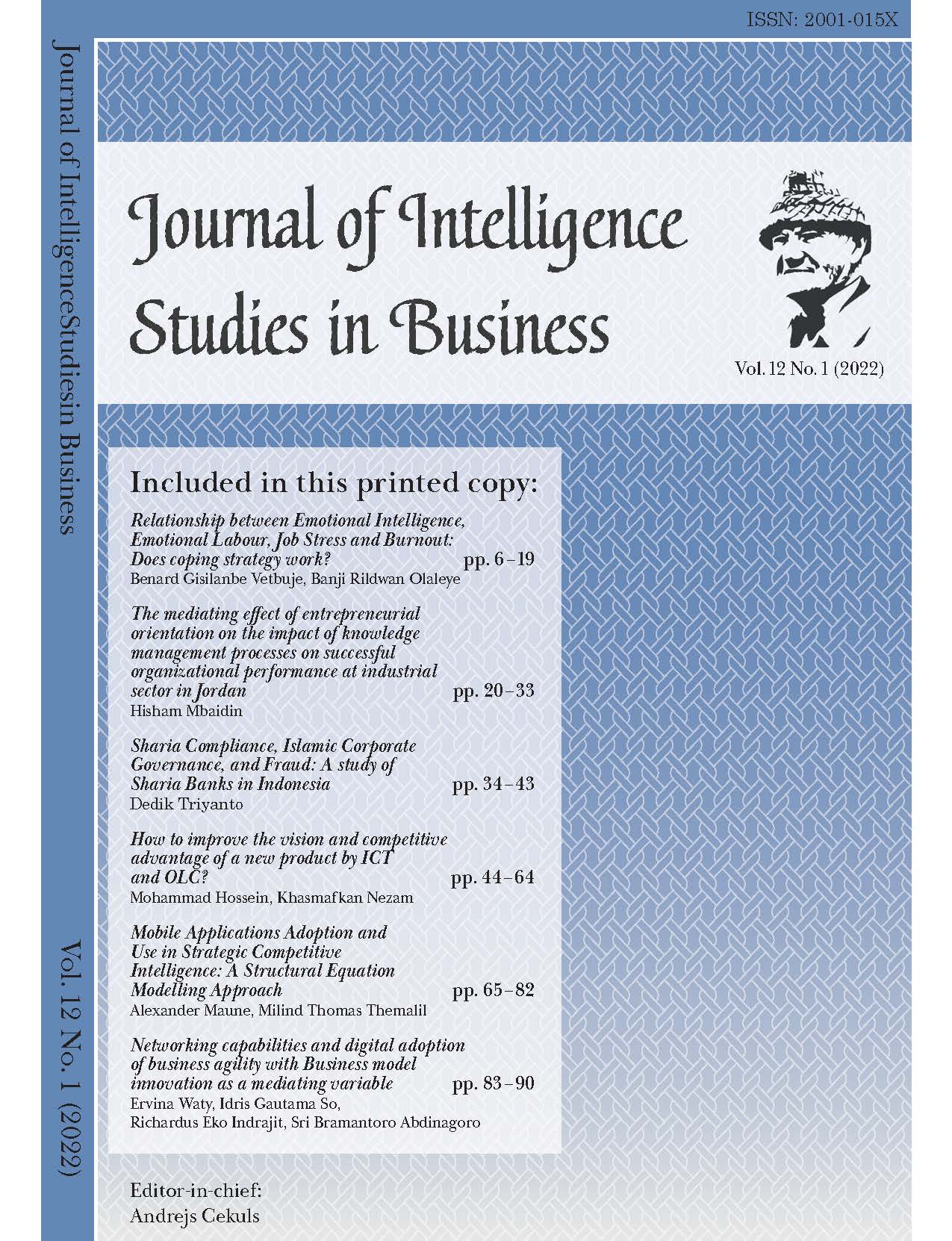Expand the scope of competitive intelligence
DOI:
https://doi.org/10.37380/jisib.v12i1.924Abstract
In today’s fast-paced business environment, having a strong understanding of the competitive landscape is more important than ever. As the old saying goes, “knowledge is power,” and this is especially true when it comes to staying ahead of the competition.
Competitive intelligence is the process of gathering, analyzing, and disseminating information about the products, services, and strategies of a company’s competitors in order to gain a strategic advantage. It involves studying the strengths and weaknesses of competitors, as well as trends and developments in the industry, in order to inform business decisions and strategies.
The scope of competitive intelligence is broad, and can include a wide range of activities and sources of information. Some common sources of competitive intelligence include public information, such as company websites, press releases, and industry reports, as well as private information, such as sales data, market research, and customer feedback. Recent research shows that competitive intelligence is beginning to cover an ever wider range. The topics of scientific articles go beyond aspects of business and management.

Downloads
Published
Issue
Section
License
Copyright (c) 2022 Journal of Intelligence Studies in Business

This work is licensed under a Creative Commons Attribution-NonCommercial-NoDerivatives 4.0 International License.
Authors who publish with this journal agree to the following terms:
- Authors retain copyright and grant the journal right of first publication with the work simultaneously licensed under a Creative Commons Attribution License that allows others to share the work with an acknowledgement of the work's authorship and initial publication in this journal.
- Authors are able to enter into separate, additional contractual arrangements for the non-exclusive distribution of the journal's published version of the work (e.g., post it to an institutional repository or publish it in a book), with an acknowledgement of its initial publication in this journal.
- Authors are permitted and encouraged to post their work online (e.g., in institutional repositories or on their website) prior to and during the submission process, as it can lead to productive exchanges, as well as earlier and greater citation of published work (See The Effect of Open Access).







